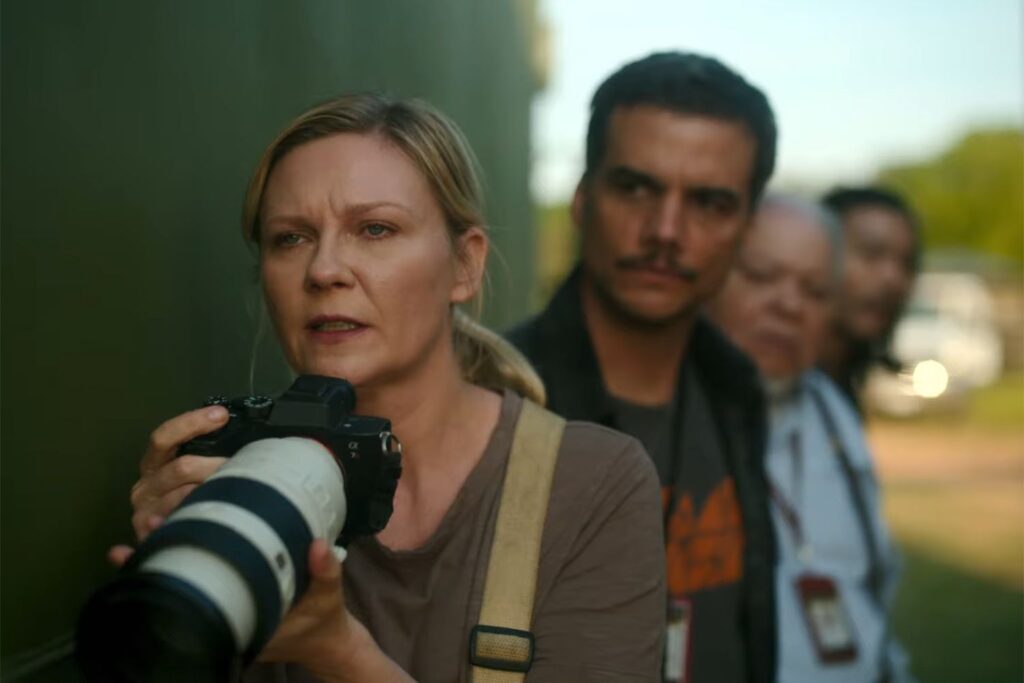
Something is wrong. We know this immediately, as soon as the A24 vanity card appears and bursts of noise explode from all sides, as though miscreants in the theater have set off fireworks in both aisles. We see a middle-aged white man (Nick Offerman) fumbling his lines as he rehearses a televised speech, and the ceremonial nature of his surroundings gradually reveals that he’s the President of the United States. As he yammers about secessionists—a faction he labels “the Western Forces”—the screen periodically cuts away to scattered shots of chaos and destruction. The President blusters that these rebels are on the brink of defeat, but the panicked nature of his rhetoric, along with the pointed images of mayhem, suggest otherwise. This uprising won’t be put down anytime soon.
This is the arresting first scene of Civil War, Alex Garland’s engaging, muddled, knotty new thriller. Simultaneously sprawling and intimate, it chronicles the challenges facing four people as the country around them is engulfed by anarchy and despair. Garland is no stranger to grappling with weighty philosophical ideas in the context of spiky, character-driven adventures. Ex Machina, his first and still best movie as a director, meditated on the very nature of humanity via a twisted, triangular war of wills; his theatrical follow-up, Annihilation, and his TV miniseries, Devs, both conjured dazzling worlds while interrogating their heroes’ motives and pondering their destinies. Civil War is his boldest effort yet, and also his emptiest.
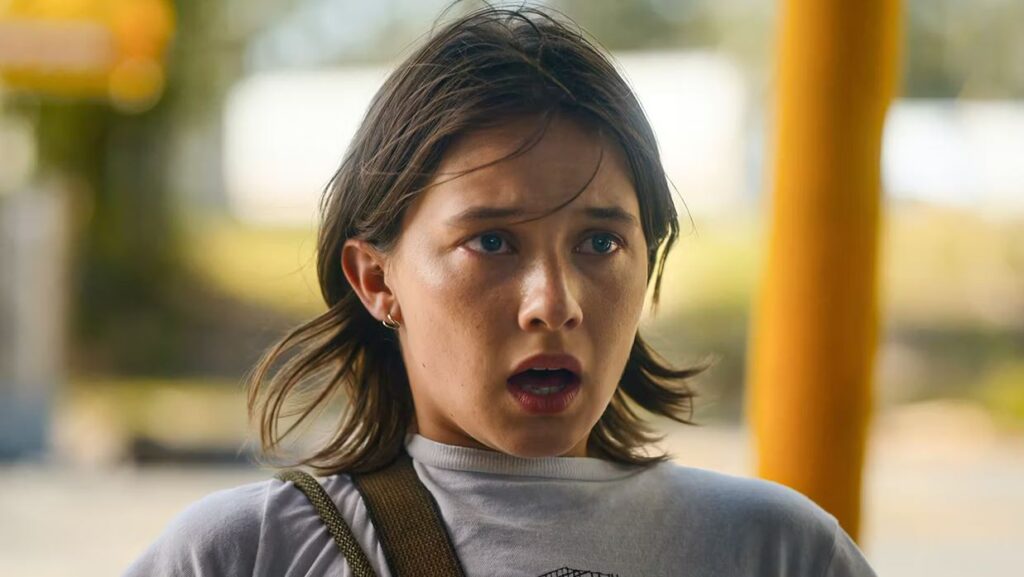
I’m speaking less critically than descriptively. We learn early in Civil War that we are going to learn virtually nothing about the civil war—not its causes, not its operations, and certainly not its politics. Rather than allegorizing to the present moment with a didactic morality play, Garland has sprinted in the other direction, creating a blank canvas onto which viewers can project their own attitudes and anxieties. If war is senseless, well, there’s no point trying to make sense of it.
The sequence that best crystallizes Civil War’s ethos—which might be described as thematic nonintervention—arrives at the rough midpoint, when a Reuters journalist named Joel (Wagner Moura) comes across a hunter-killer tandem pinned down in a fairground, taking fire from an unseen assailant. When Joel asks them which side they’re fighting for, the spotter (Karl Glusman) is perplexed. “Someone’s trying to kill us,” he says as though he’s explaining Darwinian imperatives to a four-year old. “We’re trying to kill them.” (When Joel presses for further details, the spotter responds, “Oh I get it, you’re fucking retarded.”) There is no broader ideology at work here, no sociopolitical dividing line, no why. There is simply survival, or death.
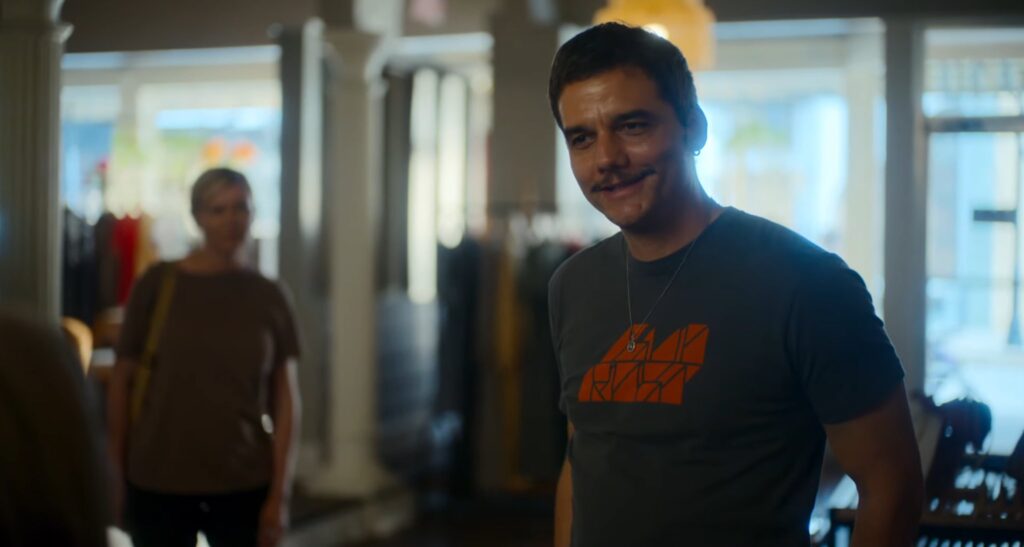
This is a provocative conceit, even if it’s also somewhat limiting. In our present climate of so-called polarization, the prospect of internecine conflict seems less improbable than it once did. (I might bring up January 6 as a harbinger of catastrophe, though Garland studiously avoids linking his fictional narrative to any real-world touchstones.) By refusing to shade his dystopian vision with any context or clarity, Garland invites you to contemplate an infinite range of possibilities. Perhaps the president is a Trumpian dictator clinging to power, and the Western Forces are a democratic coalition striving to restore order. Or maybe the reverse is true, and the WF are a terrorist militia rebelling against our pluralistic society. There are countless other potential iterations, and the uncertainty creates complexity.
Or does it? Civil War is an undeniably serious picture, but I’m still not sure whether its enigmatic nature is tantalizing or hollow. Early on, our protagonist—a renowned war photographer named Lee, played with no-nonsense tenacity by Kirsten Dunst—explains to a protégé that their job is simply to document what they see, and to let others ascribe meaning to their images. Garland seems to have taken the same approach, and while there’s merit to his restraint, he has also arguably abdicated his responsibility as a storyteller. At times, the movie’s carefully cultivated ambiguity scans less as intellectual probity than as the failure to adopt a coherent point of view.
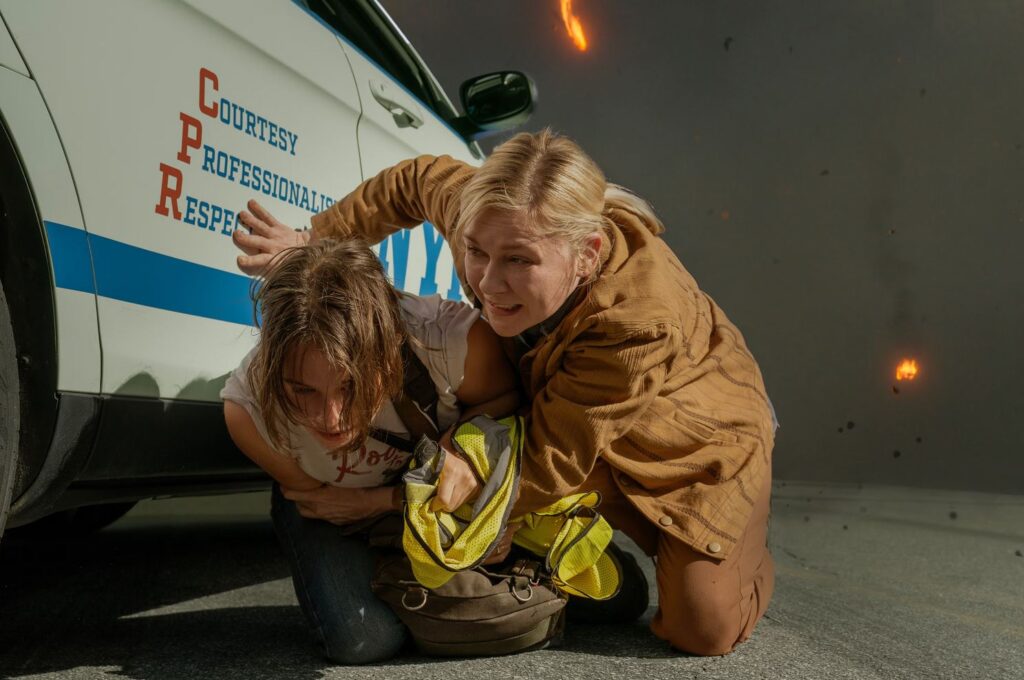
For all its vagueness and voidness, Civil War exhibits an impressive economy in terms of both plot and character. There are four principal players, all members of the press. Lee and Joel, who evince the casual familiarity of a long-term work partnership, aim to interview the president. They are joined by Sammy (Stephen McKinley Henderson), a veteran reporter searching for one last scoop, and Jessie (Cailee Spaeny), an aspiring photojournalist who gawks at the legendary Lee the way a fangirl might react to meeting Beyoncé. (They meet-cute at a protest that features a great visual joke: When a bomb goes off and police charge through the crowd swinging their batons, Lee shelters Jessie behind a cop car whose door is emblazoned with the slogan, “Courtesy, professionalism, respect.”) Following some nominal gripes—Lee laments that their backseat has become both an old folks’ home and a kindergarten—this quartet embarks on the long, winding drive from New York to Charlottesville before venturing into the heart of the conflict in the nation’s capital.
The title may promise the cacophonous violence and explosions of a military campaign, but while there is a fair amount of that, structurally speaking Civil War occupies a different genre: the road picture. It follows its central quartet on a picaresque journey, pausing at regular intervals for episodes of varying tone and tension. They stop to get gas (which they purchase with Canadian currency), only to discover that the proprietors are torturing enemies nearby—a fraught situation that Lee defuses by asking a captor to pose for a photo. They stumble into a thrift store that purports to be a bastion of indifference and neutrality, even as snipers loom on the rooftops. They observe a skirmish, which is notable for its compressed scale—a mini-war being prosecuted by just a handful of combatants. And in the movie’s best and most riveting sequence, they find themselves at the mercy of a rifle-wielding lunatic (a terrifying Jesse Plemons) who interrogates them with a chilling mixture of mania and calmness. (This is also the lone set piece that threatens to betray the film’s steadfast apoliticism.)
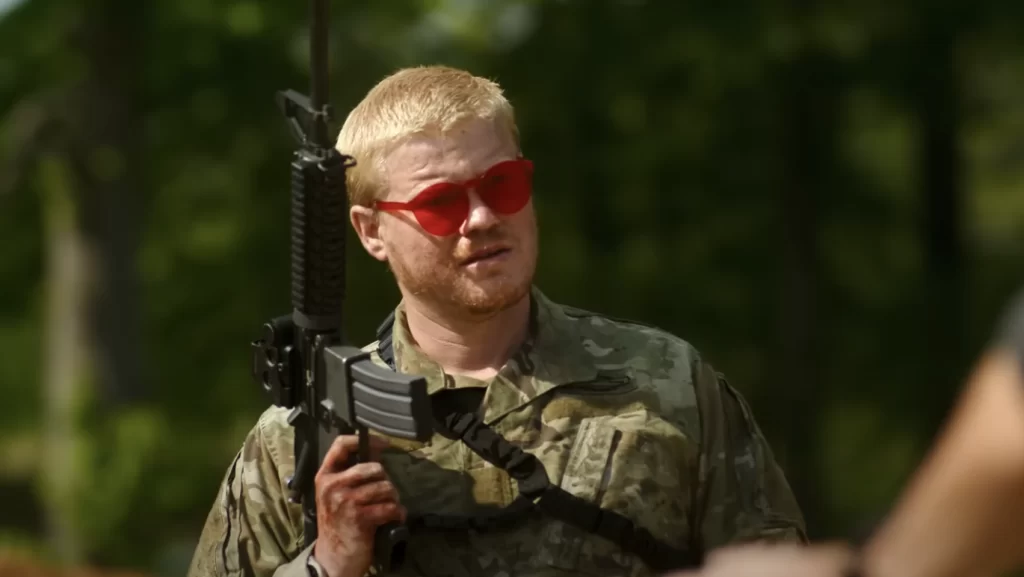
As individual moments, these scenes are engrossing and effective. As connected pieces of a unified whole, they’re less successful. The ostensible dramatic arc of Civil War is the evolving relationship between Lee and Jessie, a surrogacy that by turn implicates protectionism, contempt, and admiration. The actors are game; Dunst is a subtle performer who flecks Lee’s inveterate mastery with pinches of self-doubt, while Spaeny, as she did in Priscilla, leverages her youth (she looks 24 going on 12) to amplify Jessie’s vulnerability, along with her precocious bravado. (For their part, Moura and Henderson are reliably sturdy despite their characters’ lack of dimension; it takes real skill to sell the line, “That gunfire makes me so fucking hard.”) But the script is schematic, featuring clunky, on-the-nose dialogue (“I’ve never felt more scared, and I’ve never felt more alive”), as well as a predictable late sacrifice that feels engineered rather than powerful. What should be the movie’s emotional center instead becomes contrived ornamentation.
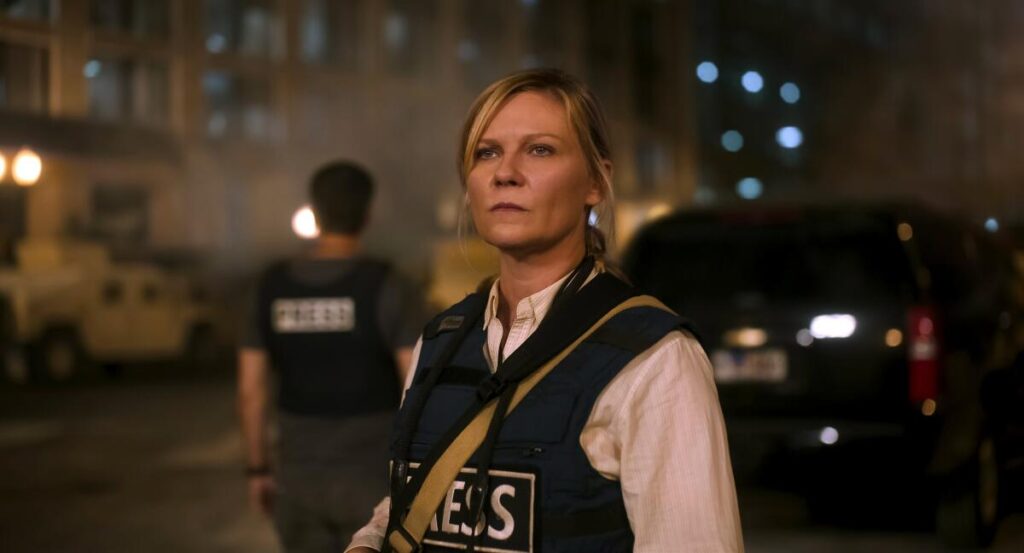
In fairness, there is quite a bit else going on. Visually, Civil War is less ravishing than most of Garland’s works, but he and his regular cinematographer Rob Hardy still manage to supply some breathtaking images; the shot of a fallen Jessie lying atop bodies strewn in a mass grave is haunting, while the sequence where a vehicle slices through a burning forest, floating orange embers lighting its path, acquires a strange, ethereal beauty. Garland also executes a curious pivot in the third act, at which point his taut and thorny think-piece transforms into a bona fide action movie. The climax of Civil War is a long, long invasion sequence, one that prides itself on its verisimilar grasp of martial tactics—reloading! break left! smoke ’em out!—even as it constantly and ostentatiously cuts to black-and-white stills of Jessie’s in-the-line-of-fire snapshots.
This scene, much like the rest of the picture, is robust, showy, and not quite as thought-provoking as it’s meant to be. As a final product, Civil War is well worth seeing for its visceral energy and its unsettling imagination. It is also deeply frustrating, both for its thematic vacuity and its clumsy character dynamics. The dreaded discourse that has sprung up around the film has alternately hailed it as a masterpiece and decried it as a hatchet job. Given that the movie envisions a frenzied battle between equally committed partisans, this is only fitting, even if the truth lies squarely in the middle. And in keeping with its spirit of opacity, the last thing I’d dare do is pick a side.
Grade: B-
Jeremy Beck is the editor-in-chief of MovieManifesto. He watches more movies and television than he probably should.
